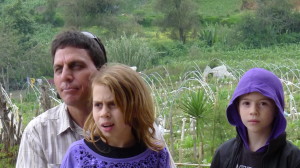There is a story that the American academic Maurice Friedman tells about Martin Buber, the great Austrian existential psychologist/philosopher. Friedman was officiating a debate between Buber and the iconic humanistic psychologist Carl Rogers, when someone in the audience asked them both whether people were “basically good or evil.” Predictably, Rogers responded that he thought that people were basically good, but Buber, also predictably, said that people were “basically good and evil, or not good and evil.”
It is always disturbing when we discover that our heroes, people who we think of as essentially good, do evil things. Equally disturbing, or perhaps more puzzling, is to discover how people we categorize as evil do good things. The classic example is the Nazi commanders who spent daytime hours sending people into gas chambers then went home, greeted their wives lovingly and read bedtime stories to their adoring and adored children. We want to simplify evil, make it less banal, and attribute it to someone else.
The literature on just what makes people choose to do good deeds is vast, and given the breadth of the topic it is of course extremely complex, especially because altruism (as it is often pointed out in the literature) runs counter to evolution. One small piece of the puzzle probably has to do with the people with whom we associate. One of the reasons I enjoyed my years as a psychologist and behavior analyst had to do with the fact that I spent most of my time being around people whose lives were devoted to helping others. Being around people who struggle to do good serves as ballast in a world in which there is so much pain.
One of those people is Richard Margoluis, who I met last year along with his wife and beautiful children while stopped at a hardware store on the way to the village of Paxixil in Guatemala. Richard was the founder of PAVA, an acronym for Programa de Ayuda a los Vecinos del Altiplano, which began over 25 years ago as a relief mission for those impacted by the horrible civil war here. Richard, who is originally from Miami, now lives with his family in Costa Rica, where he runs another non-profit and his wife, who has a doctorate in biology, runs a school she started in a remote area.
There is a quality that I sensed in Richard that I believe is shared with others who devote most of their lives to helping others. It is a fundamental humility, born I suspect of the knowledge of one’s self, how the enemy (to quote the great American philosopher Charles Schulz) is within ourselves.
I do not believe that power corrupts and that absolute power corrupts absolutely, as the saying goes. I do believe that those in positions of power by definition are capable of doing great good and great harm, and that both good and evil intention reside closely in all of us. Knowing ourselves may not prevent us from making the destructive choice, but making the dialogue between the good and evil intentions within us as conscious as possible is certainly one important link in the chain that leads us to taking the road to righteousness. The alternative is to believe that somehow we are only capable of good or evil, and that kind of blindness increases the likelihood of finding ourselves on a regrettable path.

